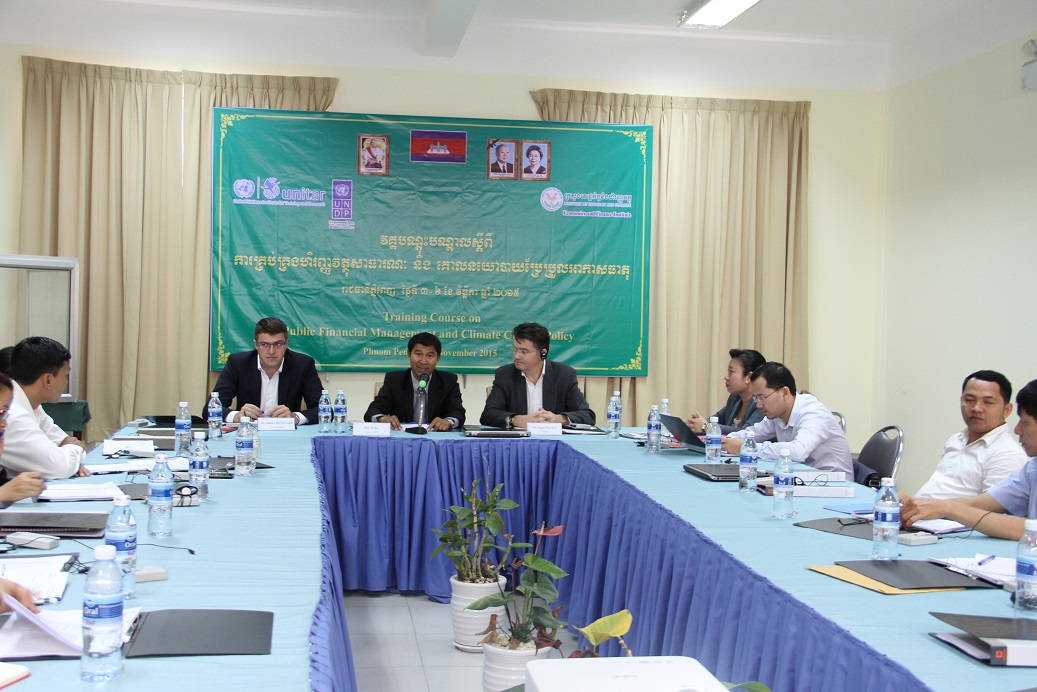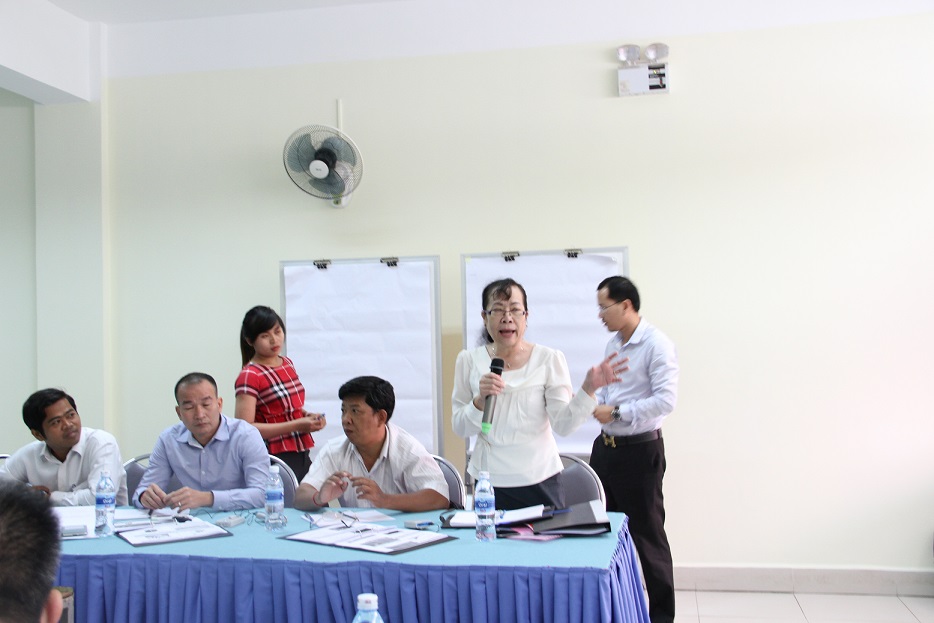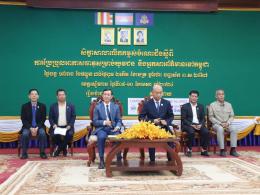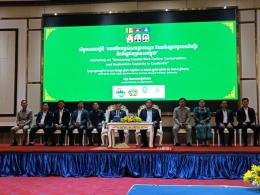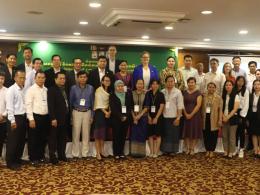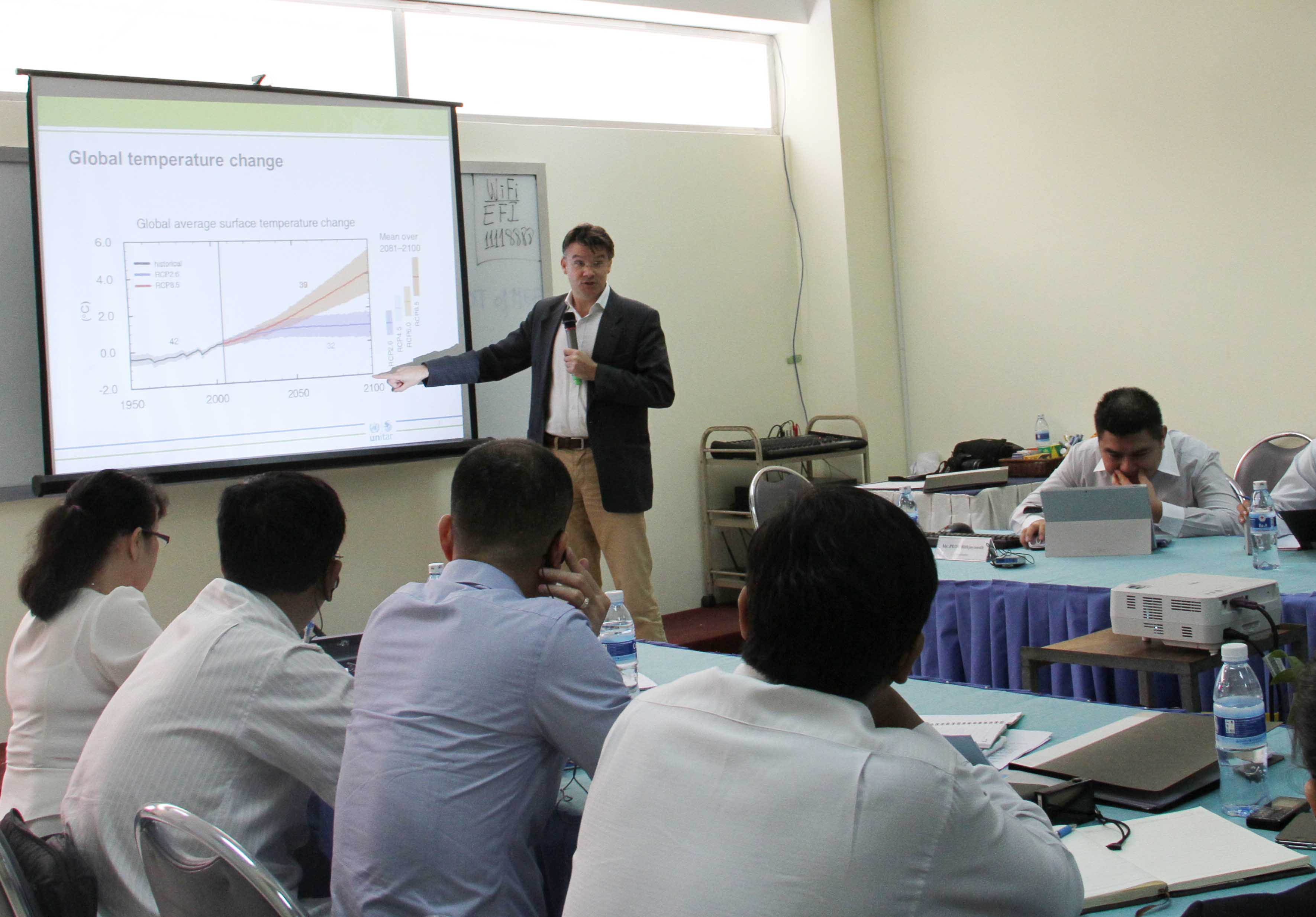 PHNOM PENH, 03 November 2015: Following a Training on Trainers focused on how the climate change response can be integrated in Government planning and budgets this August, the first training on the “linkage between Climate Change Policy and Public Finance in Cambodia” was launched today for a first group of 30 government officials at the Economics and Finance Institute (EFI) of Ministry of Economy and Finance (MEF). The objective is to advance the knowledge of how climate change can influence the effectiveness of public policies, consequently identify entry points for integrating climate change in budgeting for seven government ministries.
PHNOM PENH, 03 November 2015: Following a Training on Trainers focused on how the climate change response can be integrated in Government planning and budgets this August, the first training on the “linkage between Climate Change Policy and Public Finance in Cambodia” was launched today for a first group of 30 government officials at the Economics and Finance Institute (EFI) of Ministry of Economy and Finance (MEF). The objective is to advance the knowledge of how climate change can influence the effectiveness of public policies, consequently identify entry points for integrating climate change in budgeting for seven government ministries.
H.E. In Em, EFI director, indicated that “According to analysis carried out from 2009-2012, around 15% of Cambodia’s national budget is spent on programmes that relate to climate change. In order to better track climate expenditure, assess its efficiency and impacts, and to fully mainstream climate change in public management and regulatory practices, basic training to related officials are necessary to build capacity across the government”.
On behalf of the Cambodia Climate Change Alliance (CCCA), Mr. Julien Chevillard, Trust Fund Administrator, explained that “Initial estimates of climate change impacts for Cambodia are around 1% of annual GDP loss by 2030 and could reach 3.5% by 2050, if no adaptation measures are taken.” He noted the recognition by the Royal Government of Cambodia of the importance of this issue, which is now a cross-cutting issue in the NSDP 2014-18, and must be translated into actions through the national budget.
Mr. Angus Mackay, representing United Nations Institute for Training and Research (UNITAR), explained the objective of the training is to bring the attention of public finance professionals on climate change. Its impacts affect investment and public finance. Involving national and regional training institutions to develop local capacities to train Government officials on these issues from a basic to an advanced level is an important approach.
The four-day training course covers four modules including 1) fundamentals of climate change science related to anthropogenic, observed and projected changes in Asia and Pacific and adaptation measures, 2) interface between climate change and public policy, 3) domestic and international sources of climate finance through identifying the role of national public finance in addressing climate change and accessing and managing international climate finance, and 4) integrating climate change finance with national planning and budgeting. Group exercises and plenary discussions are included in each session.
The training is jointly organized by EFI and UNITAR in partnership with the CCCA and with financial support from the United Nations Development Programme (UNDP) and the Swedish International Development Cooperation Agency (SIDA).
